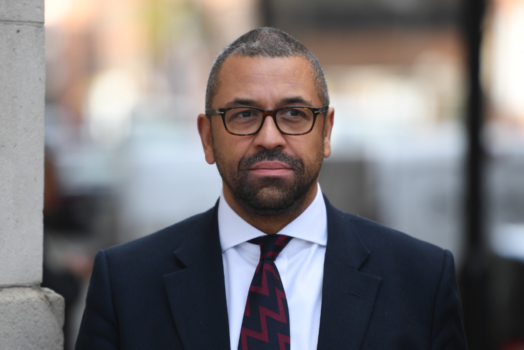 In an attempt to revive a blocked deportation policy, British Home Secretary James Cleverly signed a new treaty with Rwanda on Tuesday. The agreement aims to enable the controversial plan of sending some asylum seekers arriving in the UK to the East African nation.
In an attempt to revive a blocked deportation policy, British Home Secretary James Cleverly signed a new treaty with Rwanda on Tuesday. The agreement aims to enable the controversial plan of sending some asylum seekers arriving in the UK to the East African nation.
The Rwanda scheme sits at the heart of the Conservative government’s strategy to curb migration rates. Other countries are monitoring it as a potential model.
However, last month the UK Supreme Court ruled the removals would breach human rights laws. Ever since, Britain has sought to rework terms with Rwanda by including legally binding assurances over deportee welfare – a key court concern.
Cleverly met Rwandan Foreign Minister Vincent Biruta in Kigali Tuesday to sign a pact addressing issues cited by judges. Per the Home Secretary, the treaty now contains “no credible” reasons to obstruct deportation flights. He expressed hopes of swift implementation.
The arrangement intends to deter dangerous small boat crossings of the English Channel by funneling thousands of migrants arriving illegally to Rwanda instead of allowing them to claim UK asylum. In turn, Rwanda obtains an initial £140 million in British funding to host transferred migrants.
With net migration recently topping 745,000, Prime Minister Rishi Sunak faces intense pressure to curb asylum seeker numbers. The Rwanda policy forms part of his wider push to halt small boats leaving continental Europe bound for Britain.
Immigration Minister Robert Jenrick argued government action was justified because those crossing the Channel essentially broke into the country. Most immigrants enter Britain legally, though ministers did unveil separate plans this week to cut permissible skilled worker visas.
Safeguarding the Rwanda policy remains a centerpiece of the ruling Conservatives’ next election strategy. Legislators are expected to soon designate Rwanda a “safe country” to limit legal injunctions against removal flights.
Domestic tensions simmer within the party on how to proceed after court defeats, with some members urging the UK withdraw from European human rights oversight.
With nearly 29,000 migrants reaching the southern English coast illegally so far this year, the policy continues generating controversy across Britain’s political spectrum. Church groups, the UN and opposition party lawmakers all lined up to label it variously “flawed”, “a waste of money” and “immoral”.

ByteDance Refuses TikTok Sale Despite US Pressure, Plans Legal Challenge
Harvey Weinstein’s Rape Conviction Overturned, Paving Way For New Trial
Biden Administration Imposes New Sanctions On Iran Following Attack On Israel
Israel’s European Allies Urge Restraint Amid Escalating Tensions With Iran